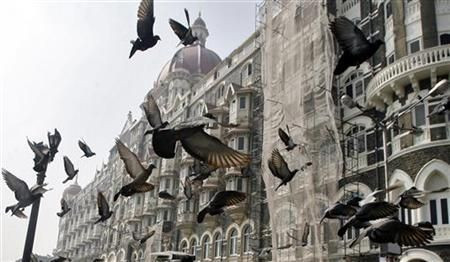Pigeons Disappearing In 'Bird Bermuda Triangle'

Flocks of missing birds have British homing-pigeon owners concerned. In a mysterious area that's already been dubbed the Bermuda Triangle of birds, people in the U.K. are worried because their racing pigeons appear to have vanished into thin air.
In one case, only 13 of 232 birds released in Thirsk, North Yorkshire, arrived at their destination, the Telegraph reported. The pigeons were released by a Scottish racing club that normally finds the birds at the finish point, which is Galashiels, Selkirikshire.
It might seem natural for the birds to fly away, but many racers reported uncharacteristically losing their pigeons since the season opened in April. The creatures could have disappeared because of abnormally frequent summer showers or due to unusually high levels of solar activity that disrupted their magnetic fields. Whatever the cause, investors are not pleased because the highest price ever paid for a single racing pigeon is $328,000, according to NPR.
The Telegraph wrote that when pigeons fly together in large groups, they confuse each other. By that logic, there could be a flock of the birds flying into each other right now somewhere over the Atlantic Ocean.
A nearby U.S. spy base at Menwith Hill, North Yorkshire, has also come under fire for distributing unusually strong electronic fields into the air.
Gawker published its own scenario Friday: "The most obvious explanation is that Satan is calling home his sons and daughters."
"It is the worst year in the memory of people who have been racing for 60 years," an individual who competes in the sport told the Telegraph.
The Sun noted that the Bird Bermuda Triangle in question ranges from Consett, in County Durham, to Thirsk and Wetherby, both in North Yorkshire. Anyone who finds a homing pigeon should give it corn and sugar water, the Sun said.
© Copyright IBTimes 2024. All rights reserved.





















